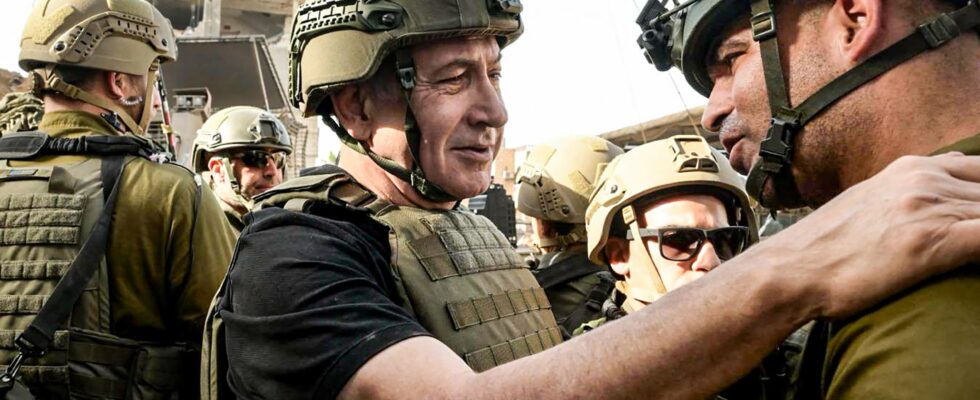This time, Israel resorted neither to a Mossad infiltration worthy of the best spy films, nor to a Machiavellian plan comparable to the attack on the Hezbollah pagers. On October 16, after a year of tracking, it was a simple routine patrol that eliminated Yahya Sinouar, the leader of Hamas and architect of the massacres of October 7, in the south of the Gaza Strip.
Following the entry into the Palestinian enclave, in October 2023, the Israeli general staff distributed a set of cards to IDF soldiers, with the portraits of the targets of the terrorist organization to be eliminated. Sinwar was the joker, Hamas’ most powerful card. The most unpredictable too. Everywhere and nowhere at the same time, elusive for more than a year: hidden in the kilometers of the Gaza tunnels, executioner of Israeli hostages, rumor sometimes took him to Egypt, Syria or Iran. Each time several steps ahead of these Israelis, whose language, culture and history he mastered to perfection, thanks to his twenty-three years spent in their jails.
An opportunity for Israel to end the war in Gaza with its head held high
After a year of a terrible war on all fronts, and faced with the risk of a global conflict with Iran, Western leaders heaved a sigh of relief at the sight of the lifeless body of the terrorist leader, surrounded by soldiers of the IDF. “The opportunity now exists for a ‘day after’ in Gaza, without Hamas in power, with a political agreement offering a better future for Israelis and Palestinians alike,” Joe Biden hastened to declare. Wishful thinking for the American president at the end of his reign.
This major symbolic victory gives, it is true, the opportunity for Israeli leaders to end their war in Gaza, to sign a truce with their heads held high and revenge accomplished. On paper, this is undoubtedly the best option for Israel, capable of decapitating the two terrorist organizations that directly threatened it (Hamas and Hezbollah) and lastingly weakening its main enemy, Iran, without pushing its international isolation too far. “But all of the closely connected challenges facing Israel — facing Iran, Hezbollah and the Gaza Strip — are not going to disappear with Sinwar’s death alone,” said Jonathan Panikoff, Middle East specialist at the Atlantic Council in Washington There are still many pages to write and everything will depend on how Israel will use this new success to push its advantage in the region. According to him, Israeli leaders will not deprive themselves of strikes against Iran, in response to the ballistic missiles fired against the Jewish state on October 1, nor of an escalation in Lebanon to crush Hezbollah.
As soon as Sinouar’s elimination was announced, Benjamin Netanyahu warned that “this was not the end of the war in Gaza but the beginning of its end.” Despite the death of its leaders, Hamas retains thousands of fighters, who occupy the kilometers of tunnels in the Gaza Strip and operate in guerrilla warfare against the Israeli army. Sinouar remained his undisputed master, but others will take over. “Clearly, the war will not stop until Israel has fulfilled all its objectives,” said Yonatan Freeman, an expert in international relations at the Hebrew University of Jerusalem. Putting Hamas out of harm’s way is a of these objectives, rather advanced, but it is not enough: there is also the rescue of all the hostages, that of the return of tens of thousands of displaced Israelis to their homes, etc.”
The possibility of a hostage deal
The question of hostages will be central in the days to come. 101 captives remain in Hamas hands, only half of whom are still alive according to Israeli sources. Could the terrorist organization’s new command accept a ceasefire deal now that Sinwar, who demanded a total withdrawal of the IDF from Gaza, is no longer in charge? “His death offers the best possibility in months of obtaining such an agreement on the hostages,” says Jonathan Panikoff.
The euphoria reigning in Jerusalem could, however, contribute to Israel continuing its wars with even greater intensity. Since July, Israeli leaders have been riding the successes of their intelligence services and their army: the elimination of the head of the armed wing of Hamas, Mohammed Deif; that of its political leader, Ismaïl Haniyeh, in the heart of Tehran; the pager operation which knocked out thousands of Hezbollah members; the death of Lebanese militia leader Hassan Nasrallah in Beirut; now that of Yahya Sinouar in Gaza…
Netanyahu, at his lowest in the polls after the fiasco of October 7, has regained popularity and sees the threat of a collapse of his coalition receding a little further with each elimination of a terrorist leader. The Israeli Prime Minister would be tempted to maintain this state of grace by pushing his pawns as far as possible, with the now stated objective of “redrawing the map of the Middle East”. An obsession which will be to the detriment of millions of civilians in the region, already forced to flee the bombs from Lebanon to Gaza.
.
